Ever seen mud ooze heavily after a rainstorm?
Or watched melted chocolate drip smoothly from a cake?
In Japanese, these sensations are captured through sound:
Dorori (どろり)
Torori (とろり)
What is “Dorori” (どろり)?
A heavy, muddy thickness.
- Used for: mud, sludge, thick stew, or even gloomy atmospheres.
- Nuance: dark, sluggish, heavy, sometimes unpleasant.
Example:
The stew had boiled down,
thick and heavy —
doro ri…
Pronunciation
do-ro-ri (slow, dragging, heavy)
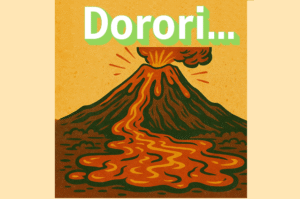
What is “Toro Ri” (とろり)?
A smooth, melty thickness.
- Used for: melted cheese, honey, chocolate, or mellow moods.
- Nuance: soft, smooth, delicious, often pleasant.
Example:
Warm chocolate spilled out of the cake,
flowing gently —
toro ri…
Pronunciation
to-ro-ri (soft, smooth, flowing)
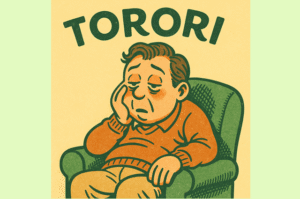
Cultural Note
In English, both might be described as “thick” or “gooey,”
but Japanese makes the nuance clear:
- Dorori (どろり) = heavy, muddy, gloomy
- Torori (とろり) = smooth, melty, delicious
That’s why どろり often appears in literature to describe oppressive moods or mud, while とろり is common in cooking shows and food writing to highlight delicious textures.
Examples in Daily Life
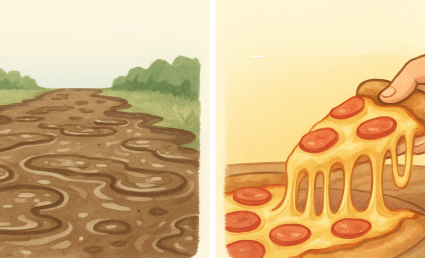
Example: Muddy street (Dorori)
After the rain, the path was filled with mud —
doro ri…
Example: Melty cheese (Torori)
The pizza stretched out in golden strings —
toro ri…
Try Using Them!
When you see something heavy, gloomy, or muddy → Say dorori!
When you see something melty, smooth, or delicious → Say torori!

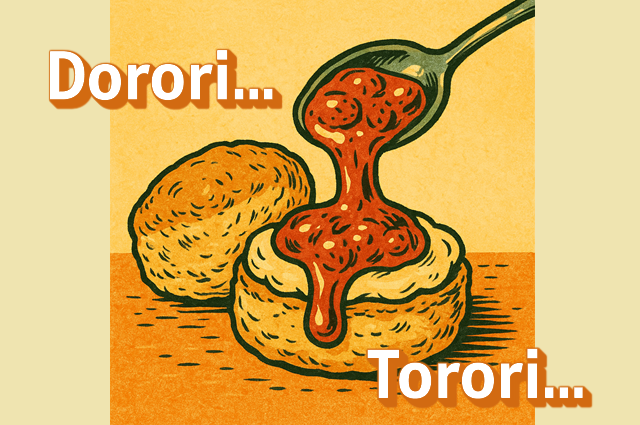

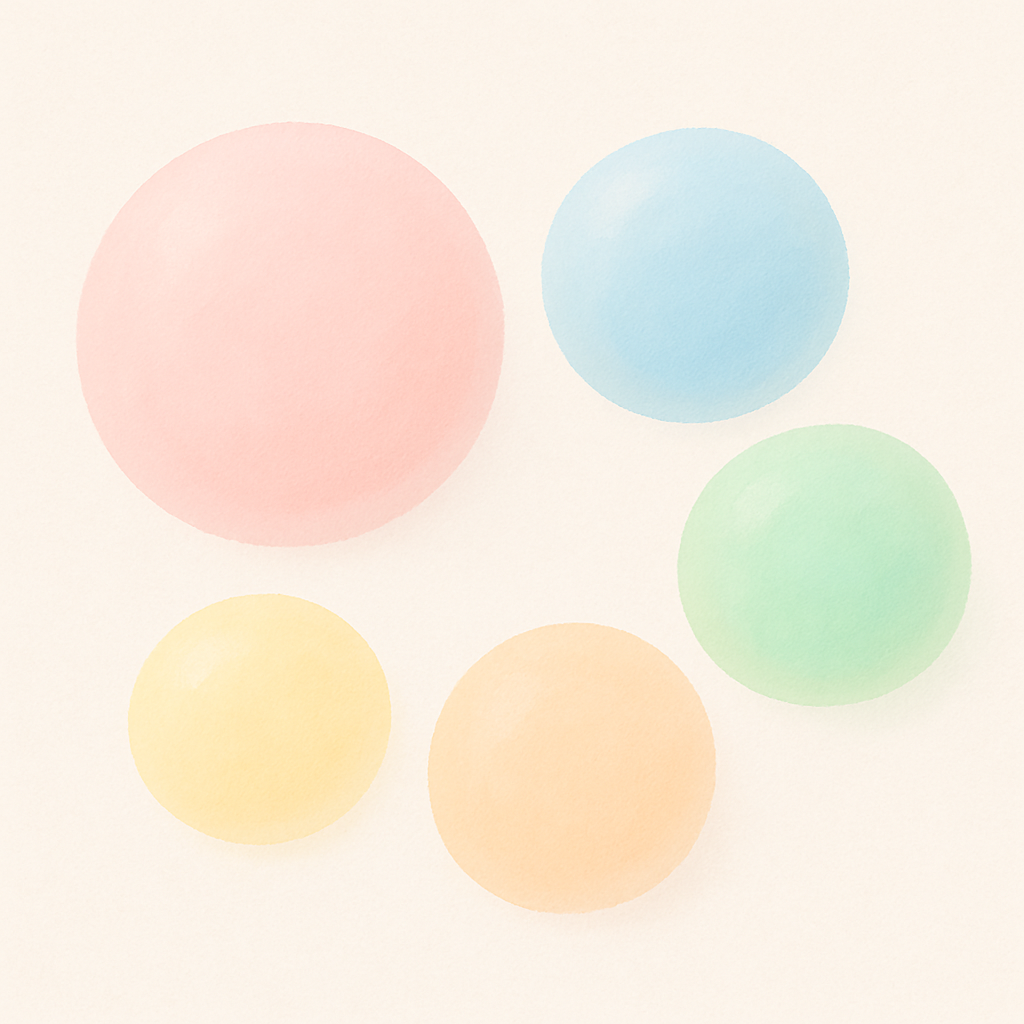




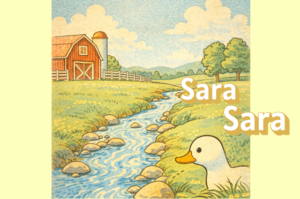
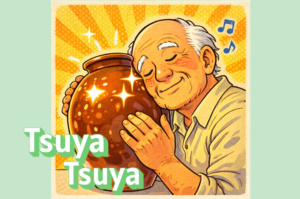



Comments